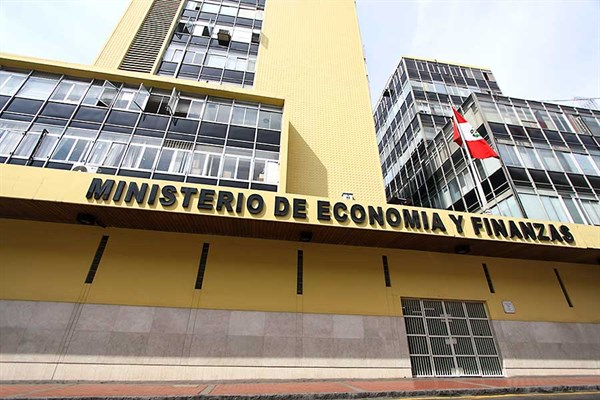
A week ago, the Congress of the Republic granted a series of legislative powers to the Executive Branch in order to stimulate the economy, fight against citizen insecurity and improve regulatory quality, mainly. This document allows to expand the fiscal deficit.
Thus, for this year the deficit is expected to no longer be 2% of GDP, but to reach 2.8%; while for 2025, it will be 2.2% and for 2026, 1.8%. In 2027, they are aiming for a deficit of 1.4% and only in 2028, it will converge to 1% of GDP. In plain English, the Government of Dina Boluarte will have more room to spend money that it does not have.
It should be noted that in 2023 the expected deficit was 2.4%, but the rule was broken and it reached 2.8%. The drop in revenue was 12% in that period and the incorporation of supplementary credits to the budget made compliance with the rule more difficult.
Apart from a second year of not respecting the deficit rule, according to the substitute text approved by Congress, the goal of reaching 30% of public debt – for which the country has to borrow because it does not have enough money – of GDP by 2030 will not be met. Now, it will not have to reach that goal until 2035.
Why take unnecessary risks?
The Fiscal Council warns that modifying the entire fiscal consolidation path for several years would imply assuming significant and unnecessary risks, and therefore, they consider it prudent to change it only for 2024.
According to the independent body chaired by Alonso Segura, the cyclical factors that reduced revenue in 2023 are already being reversed, and now, with the economic recovery underway and the current prices of the minerals we produce, the fiscal deficit for this year would return to levels similar to those of the fiscal rule without sacrificing the spending levels already planned.
Thus, they claim that moving the deficit consolidation target to 1.0% of GDP from 2026 to 2028 would transfer the effort to the next government and generate a problem of temporal inconsistency.
“The extension of the current fiscal deficit target for this year should reflect a commitment to greater discipline that limits increases in public spending and initiates fiscal consolidation from the current year,” scored the CF.
Cause and effect: can we reach 2.8% this year?
Former Minister of Economy and Finance Luis Miguel Castilla recalled that the fiscal deficit, at this time, is 3.9% of GDP —according to BCRP figures— and therefore, he considers it difficult for it to converge to 2.8% for this year, but he considers the disclosure to be positive.
Castilla agrees that the next government is being burdened with the process of fiscal consolidation, since the return to 1% of GDP for the deficit will not happen during Boluarte’s administration, which will have to go into debt to cover the fiscal gap and not neglect the population.
“Spending is growing much more strongly than anticipated, due to initiatives by both the Executive and Congress. The sources of revenue are being undermined by a series of tax exemptions and preferential treatment, further eroding public finances. 2.8% may be too low.” Castilla told La República.
Meanwhile, Kurt Burneo, a professor at Centrum PUCP, does believe that the deficit of 2.8% of GDP will be reached this year, although he considers it essential that Minister José Arista and the Fiscal Council meet to discuss convergence plans.
Burneo Farfán stresses that it is private investment that drives the economy and not public investment – which accounts for 80% of the total – although he encounters many headwinds with spending initiatives from Congress that reduce the Executive Branch’s room for maneuver.
“The problem is that we have an empowered Congress that brings many surprises, and investors are not very happy with it. Laws are established that can sometimes affect ongoing projects, and one of the fundamental elements for investing is trust,” Burneo told this news outlet.
It should have been done via a bill
The Fiscal Council insisted that any changes to fiscal rules or their parameters must be made through a bill as required by the current fiscal framework, which will allow the proposals to be discussed publicly once they have been put forward.
They also urged that initiatives of this nature be supported by a prior non-binding opinion from the Fiscal Council.
Source: Larepublica
Alia is a professional author and journalist, working at 247 news agency. She writes on various topics from economy news to general interest pieces, providing readers with relevant and informative content. With years of experience, she brings a unique perspective and in-depth analysis to her work.












